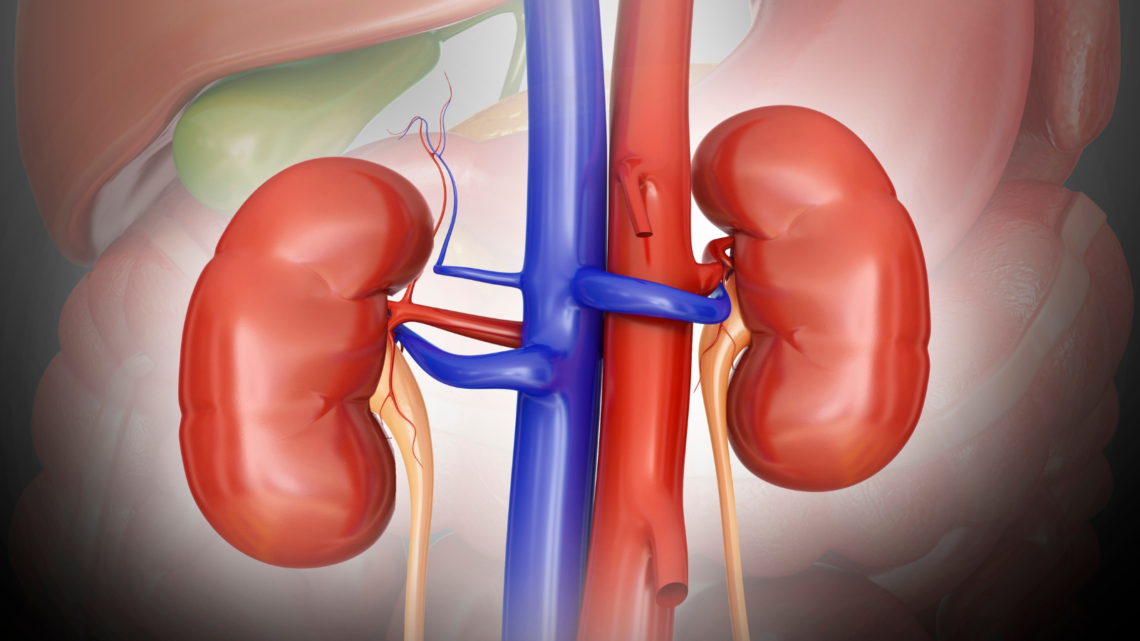
Kidney Disease
The number of Canadians living with kidney disease has been steadily increasing over the years. Currently, an estimated 1 in every 10 Canadians have kidney disease, while it affects as many as 850 million people worldwide. The kidneys are responsible for filtering excess water and waste from your blood and converting it to urine. They’re also responsible for balancing salt and minerals in your body, including calcium, sodium, potassium, and phosphorus, in addition to creating red blood cells, controlling blood pressure, and strengthening bones. However, when you have kidney disease, this means that your kidneys cannot properly filter blood in the way it should be. Over time, this can lead to kidney failure.
Because kidney disease can progress silently, early detection is key for being able to make the appropriate changes necessary in order to improve the health and function of your kidneys. There two main ways that kidney disease can be diagnosed: Through a blood test, or by urinalysis. A blood test will measure your level of serum creatinine, which will indicate how well your kidneys are (or how well they aren’t) functioning and filtering blood. During a urinalysis, labs techs will look for a protein known as albumin in your urine. If this protein is present, then there is a strong likelihood that your kidneys have some damage. The higher the albumin level is, the higher your risk is of losing function of your kidneys. Kidney disease can also be detected through biopsies, ultrasounds, and X-rays.
As for how you can prevent kidney disease from developing, it’s important that you have your blood pressure checked on a regular basis. If you have high blood pressure, this can speed up kidney disease – particularly if your high blood pressure is uncontrolled. Some medications have also been known to contribute to kidney disease, like over-the-counter painkillers such as NSAIDs. If you are going to be taking an over-the-counter medication, you should first double check with your physician or pharmacist to make sure it’s safe.
As mentioned, kidney disease is often a silently progressing disease, meaning symptoms will not always be present until it has reached a later stage. However, there are some symptoms that one can develop that may be an indicator of kidney disease and kidney failure. You may feel fatigued or find that you’re sleeping for an extended amount of time, you may feel cold, faint, dizzy or weak, your skin may feel itchy, you might have shortness of breath, have trouble concentrating or thinking clearly, have a swollen, puffy face or swelling of the hands or feet, upset stomach, nausea, vomiting, discoloured urine, have blood in your urine (which is one of the signs of kidney failure), or have difficulty passing urine.
Once you have received a definitive diagnosis of kidney disease, treatment is often geared towards treating the associated symptoms and any complications that can develop as a result of having kidney disease. For example, you may be prescribed medication to control high blood pressure or medication to lower cholesterol, medication to treat anemia, medical to treat swelling, as well as calcium D supplements to help protect and keep your bones strong.
If you develop kidney failure, you will most likely have to receive kidney dialysis, which is something that will artificially remove fluid and excess waste products from your blood when your kidneys are no longer able to do this on their own. In some cases, you may also require a kidney transplant. If you do undergo a kidney transplant, you will need to take medication to prevent your body from rejecting the new organ. In terms of diet, there are also certain things that you should avoid with kidney disease. For example, you should limit your intake of protein, as the more protein you eat, the harder it can be on weak kidneys. Foods that are high in potassium, such as nuts, avocados, mangos, bananas, oranges, spinach, tomatoes and potatoes, should also be avoided, as when you have kidney disease it can cause potassium to buildup in your body to levels that are considered unsafe. You also need to limit phosphorus, as well as your intake of salt, sugar, and starches. Canned foods and whole wheat bread should also be avoided. As for the types of foods that are considered safe to eat with kidney disease, some include apples, cranberries, blueberries, raspberries, strawberries, cherries, egg whites, onions, cabbage, cauliflower, and garlic.

